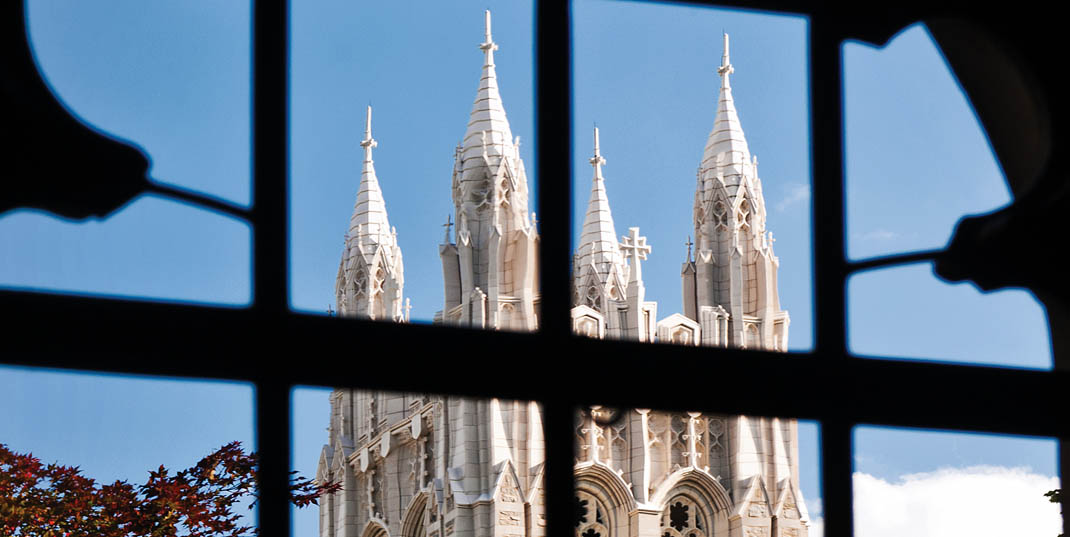The start of any academic year typically brings challenges for students as they adapt to campus life. But this year is an obvious exception: The return to the Heights amid COVID-19 safety protocols and guidelines—including testing and quarantining—has significantly altered students’ academic and social interactions.
Among other resources to assist them at BC, University Counseling Services offers a Zoom-based series, “Alone Together,” to provide undergraduate and graduate students a safe, supportive virtual gathering space to discuss shared struggles, including navigating uncertainty, social disconnection, and isolation, with a focus on both mental health and physical health in the time of COVID-19 and physical-distancing requirements.
“The UCS support group and workshop series was created in the spring as a way of responding to new student needs in the context of remote learning and the pandemic our students are dealing with,” explained UCS Director Craig Burns. “We have been trying to find ways to provide support for students dealing with feelings of isolation, loneliness, uncertainty, and anxiety.”
During the spring and summer, hundreds of students participated in one or more group or workshop meetings, which are organized by UCS Senior Staff Psychologist Emily Kates. The meetings resumed earlier this month and will be held weekly throughout the fall. Students may attend as many or as few meetings as they choose, and Burns anticipates that the number of attendees will likely rise during the semester.
According to Burns, UCS has offered groups broadly designed to foster building connections and feeling less alone; others directed to more specific populations such as students of color, LGBTQ students, or international students who may benefit from more focused group contacts; mindfulness meditation workshops designed to help people build skills for being centered on the present and building acceptance; and workshops focused on skills for anxiety management.
“We recognize that peer support, and having the chance to see and connect with others managing similar experiences, is one of the best ways to build and reinforce student well-being,” Burns said. The drop-in style, non-clinical meetings are also available to students who, as a result of being out of state or country, would not otherwise be able to engage support through UCS due to state licensure limitations, he noted.
To date, many of these meetings have addressed similar themes that students raise, such as dealing with the uncertainty in their lives at the moment, or trying to find ways to connect with others while practicing social distancing. UCS encourages self-care among students, in all aspects of their physical, emotional, intellectual, and spiritual well-being.
UCS seeks to provide a welcoming and supportive environment for all members of the BC community and is committed to fully recognizing and valuing all identities, beliefs, or experiences.
“We think that the students who attend these meetings are doing the best that they can to manage in these difficult times, and we want to reinforce what is working and support them in building new skills along the way,” Burns said.
Rosanne Pellegrini | University Communications | September 2020




